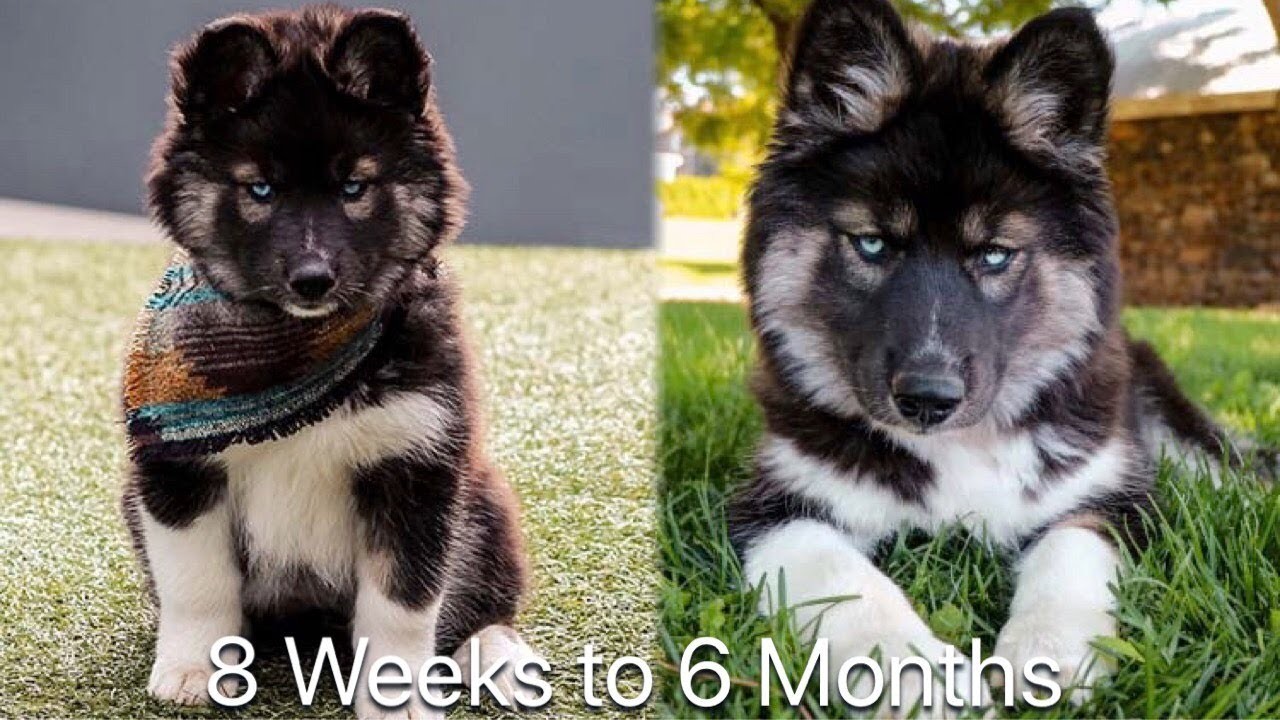
At six months of age, Siberian Husky puppies enter a crucial developmental phase marked by rapid growth and increasing energy needs. During this stage, these intelligent working dogs require approximately 2.5 cups of high-quality puppy food daily, divided into two meals. A typical male Husky puppy at this age weighs between 35-40 pounds, while females are slightly smaller at 30-35 pounds. Proper nutrition and feeding schedules are vital as these puppies develop their characteristic muscular build and thick double coat. Their dietary requirements must be carefully monitored to support healthy bone formation and sustain their high energy levels.
6 Month Old Husky Development
Diet and Feeding Schedule
At 6 months old, Siberian Husky puppies should transition from 3 meals to 2 meals per day. The recommended daily food intake at this age is approximately 3 + 2/8th cups of dry puppy food, split between the two meals. Maintaining proper nutrition during this critical growth phase is essential for healthy bone development and overall wellbeing.
Training Milestones
By 6 months, Husky puppies should continue with obedience training while incorporating more advanced activities. At this stage, they can begin sport training like cart pulling or bikejoring in short distances within the yard. However, long-distance running should be avoided until they reach one year of age to protect developing joints. It's crucial to maintain vigilance regarding escape behaviors, as each Husky develops unique methods of getting out - some may learn to manipulate door handles while others might find ways to exit their crates. Owners should identify their puppy's specific tendencies and implement appropriate safety measures.
Understanding 6 Month Old Husky Growth and Development
Physical Development Milestones
At 6 months, Husky puppies enter a critical teething phase as their adult teeth continue growing in. Most puppies will have the majority of their 42 adult teeth by this age. During teething, they may exhibit increased chewing behavior and mild gum bleeding. Providing appropriate chew toys and frozen treats can help soothe sore gums. Regular dental checks are important to identify issues like retained baby teeth or misaligned bites that require veterinary attention.
Nutritional Requirements
While the previous section covered feeding schedule, this section focuses on specific nutritional needs. A 6-month-old Husky requires a balanced puppy formula with proper calcium and phosphorus ratios for healthy bone development. Grain-free diets or those using peas/potatoes as primary carbohydrates should be avoided due to potential heart condition risks. Premium kibble options may be beneficial for picky eaters as they provide concentrated nutrition in smaller portions. If using treats for training, reduce regular meal portions accordingly to prevent overfeeding. Regular weight monitoring helps ensure proper growth - males should be progressing toward their adult weight of 20-25kg, while females toward 16-23kg.
6 Month Old Husky Exercise and Enrichment
Physical Activity Guidelines
While the previous training section covered sport training basics, this section focuses on daily exercise requirements. At 6 months, Huskies need structured physical activities balanced with mental stimulation. Interactive play sessions like chase games are more engaging than fetch. Provide 2-3 play sessions daily, each lasting 15-20 minutes. Monitor for signs of overexertion since joints are still developing. Games should focus on engagement rather than endurance at this stage.
Mental Enrichment Activities
Mental stimulation is crucial for preventing destructive behaviors in this intelligent breed. Nose work games and scent activities provide excellent mental exercise while building focus. Use food puzzles and treat-dispensing toys during meals to make eating more engaging. Rotate between 2-3 different puzzle toys to maintain interest. Basic agility equipment like tunnels can be introduced, avoiding jumps until physical maturity. Regular training sessions should incorporate new commands while reinforcing basics learned earlier. This mental engagement helps prevent escape attempts by redirecting their problem-solving abilities toward appropriate activities.
Conclusion
At 6 months of age, Husky puppies enter a crucial developmental period requiring specific attention to diet, training, and exercise. The research indicates that puppies should transition to two meals daily totaling approximately 3 + 2/8th cups of balanced puppy food, with careful attention to proper calcium and phosphorus ratios. While basic obedience training should continue, this age allows for the introduction of sport-specific activities, though long-distance running should be avoided until one year of age to protect developing joints.
The findings emphasize the importance of both physical and mental stimulation through structured 15-20 minute play sessions and enrichment activities like nose work and puzzle toys. Special consideration must be given to escape prevention, as Huskies develop unique methods of getting out. Teething is also a significant milestone at this age, requiring appropriate chew toys and dental monitoring. Moving forward, owners should focus on maintaining consistent training while gradually increasing exercise intensity as the puppy approaches physical maturity, always monitoring for signs of overexertion and adjusting activities accordingly.